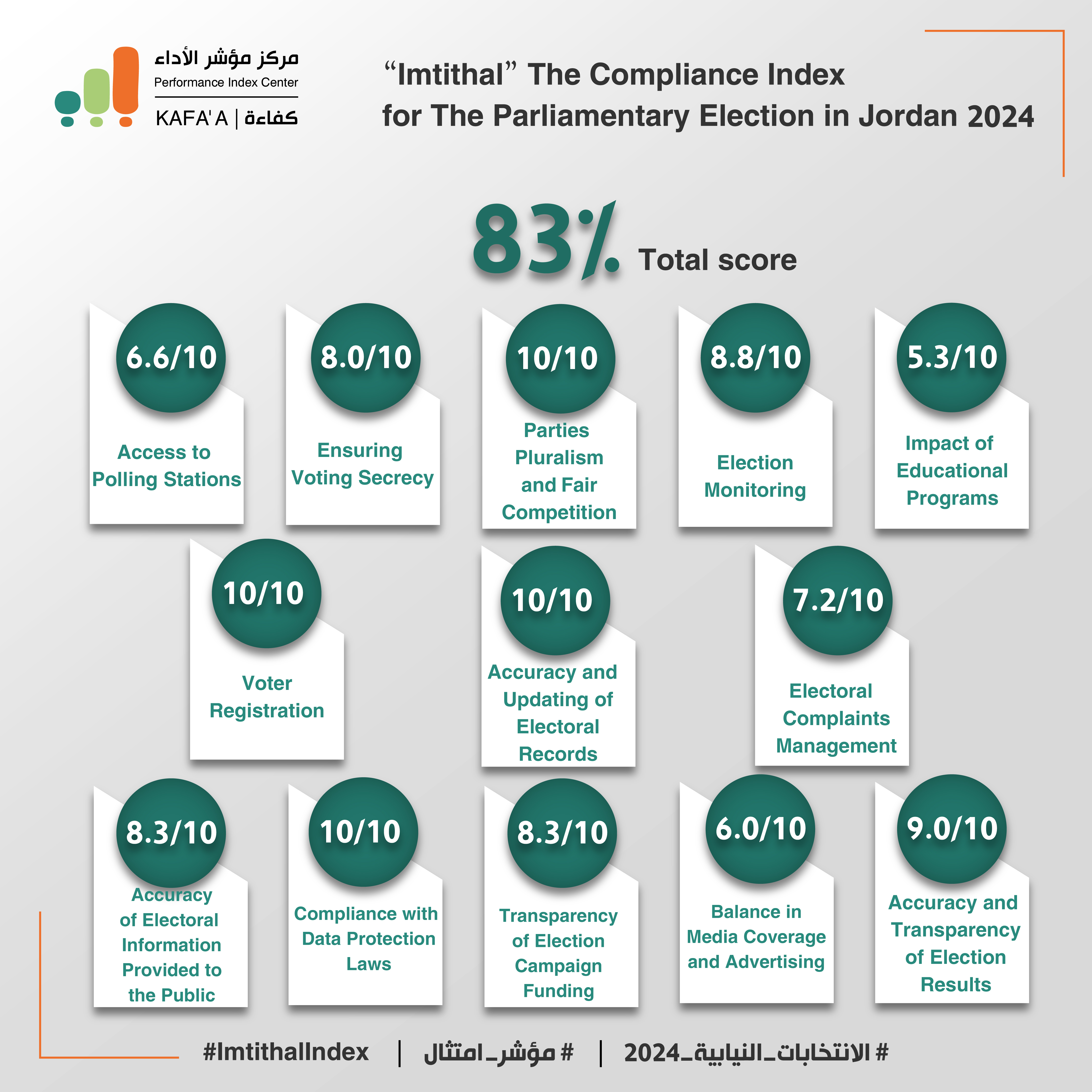Imtithal Index
The Compliance Index “Imtithal” provides a series of data and reports collected based on a process of monitoring, analysis, and evaluation built upon a set of indicators developed under the umbrella of local laws and in accordance with the international standards. These standards are fundamentally based on the “Declaration of Principles for International Election Observation,” adopted by the United Nations in 2005. While developing the main indicators, all relevant agreements were considered, including the Universal Declaration of Human Rights, Article (21), the International Covenant on Civil and Political Rights, and the Convention on the Elimination of All Forms of Discrimination Against Women, in order to derive conclusions that would allow the extraction of monitoring and evaluation standards.
In terms of integrity and transparency, the indicators were derived from the Declaration on Criteria for Free and Fair Elections of the Inter-Parliamentary Union (1994), international transparency standards, data protection laws, international transparency principles, the Declaration of Principles for International Election Observation, and the Code of Conduct for International Observers, issued on October 27, 2005.
Additionally, it referred to the International Covenant on Civil and Political Rights, Article 25, the electoral standards and guidelines applicable to the Organization for Security and Cooperation in Europe (OSCE) as published by the International Institute for Democracy and Electoral Assistance (IDEA) in 2002, as well as European agreements on democratic elections, international human rights charters, United Nations principles, European agreements, international election standards, international principles for free elections, European data protection laws, equal access to media, and the voting rights of expatriates under international law.
Moreover, numerous charters, protocols, declarations, and agreements related to this democratic process were reviewed to present this new model, aimed at monitoring the performance of institutions responsible for executing the electoral process. As mentioned earlier, the core work of the index is tied to the extent of compliance and commitment of the Independent Election Commission in Jordan to the tasks assigned to it and its adherence to procedures that ensure its independence and compliance with both local and international laws.
This highlights the importance of the Compliance Index, which can be applied internationally with minor adjustments specific to each country. This aligns with the mission of the Performance Index Center | KAFA’A, which is dedicated to enhancing the democratic process at local, regional, and international levels.
-
Imtithal Index – Jordanian Parliamentary Election 2024

The Compliance Index refers to the extent of compliance and commitment of…
